EU Sanctions on its Neighbourhood
This article follows the recent analysis of economic sanctions as a coercive tactic and their role in international relations. As part of this topic, the first case study ‘‘US Sanctions on China” examined how sanctions are used in traditional world politics, where governments or global leaders decide to impose sanctions based on their national agendas. It is now time to explore how sanctions are shaped in an intra-state, collective level.
For this analysis, the European Union is selected as the area of study. The reason behind this lies in the particularity or the unique role of the European Union in the global system, which will help us to better understand how sanctions work in the modern politics outside the national boundaries. An in-depth analysis of the reasons is given in the section below.
Why choosing the EU as an area of study for the economic sanctions?
To answer this question, let’s first look at the role of international institutions in the modern world. Nowadays, international institutions play an important role in global peacekeeping and order. In a globalised world, states join regional and international organisations to strengthen their national security, economy or their negotiating power. Of course, this list is not extensive, as there are many factors behind a state’s decision to join an organisation.
Compared to any other international institution, the European Union is a unique example in international relations. As part of the economic and political integration, not only its member states confer voluntarily sovereign rights to the European Institutions, but also implement laws and decisions made within the EU decision-making centres. Therefore, the EU has legislative power among other competencies. In this context, economic sanctions are decided on a collective level within the EU decision making centres. The next section explains the EU framework on sanctions regulation.
How does the EU decide on economic sanctions?
The Lisbon Treaty in 2009 foresees the formation of a foreign policy and security body within the Union. This is how the European External Action Service (EAAS) is born in 2010 as the responsible body for coordinating all the EU diplomatic service actions including economic sanctions, while the EU Council will agree on and then pass them as law to the European Commission.
Based on the definition of sanctions on the European Commission’s portal:
‘’Sanctions is the policy of the European Union to intervene when necessary to prevent conflict or respond to emerging or actual crises. In certain cases, EU intervention can take the form of restrictive measures or ‘sanctions’” (European Commission).
In alignment with the UN framework on sanctions, the EU may impose restrictive measures to “bring about a change in the policy or conduct of those targeted”, whether that be governments or non-state entities – companies, individuals, groups or organisations (Consilium).
According to the Concilium’s portal, the key objectives for imposing sanctions can be the:
safeguarding of the EU’s values, fundamental interests, and security;
preserving of peace;
consolidation and support of democracy, the rule of law, human rights and the principles of international law;
conflict prevention and strengthening of the international security;
Given the emphasis of the EU in peace and security in its neighbourhood over the last decade, the following section focuses on the recently imposed sanctions in Russia and Belarus.
Two ‘EU Sanctions’ case studies
a) EU and Russia
The Russian-Ukrainian conflict has been marked with continuous destabilisation and violations in Ukraine’s territory, which culminated in 2014 to the illegal annexation of Crimea from Russia. In alignment with the US foreign policy, the EU response was immediate imposing 6-month restrictive measures against Russia.
Since then, the EU has never lifted the sanctions and is expected to review them again at the end of January 2021. The reason behind this rollover lies in the lack of satisfactory fulfilment of all Minsk agreements conditions from Russia’s side.
So, what’s the objective behind these measures? According to the EU Council, the answer is to: a) limit Russia’s access to the EU capital technology market, which is essential for oil producers; b) impose export and import bans on military and arms trade (European Council, 2020c).
In addition, EU officials introduced a number of restrictions targeting Russian individuals and companies that undermine Ukraine’s sovereignty and independence. These include asset freezes such as property purchases and sales in the EU; travel bans preventing individuals to enter an EU country. Similar to other restrictions, these individual measures have been equally renewed until September 2020 and will be subject to further review.
Despite different opinions on keeping or loosening the sanctions, the bloc seems determined to prolong them. On the other hand, Russia remains standstill to its positions and rules out the possibility of withdrawing its forces from Crimea (Reuters, 2020). An interesting observation posed in a recent Financial Times article is that the Russian economy has managed to well-adapt to the current situation, despite the financial difficulties imposed by the EU sanctions.
b) EU and Belarus
Following the Belarusian presidential elections on August 9, Alexander Lukashenko was elected again in the role of president for a 26th consecutive year. As expected, public reaction was immediate; leading to post-election protests and demands for new elections. In the meanwhile, his counterpart, Svetlana Tiknanovskaya, fled the country to find refuge to Lithuania, amid fears for her life.
Soon, the post-election landscape in Minsk converted into a violent crackdown. Pictures of protesting civilians being beaten on the streets and arrested by policemen led to external reaction and disapproval. This pressure was also felt in the EU level, with neighbouring countries pushing the EU decisionmakers to react, while calling for restrictive measures to be taken against Belarus.
Noticeably, this is not the first call for Belarus discussing the imposition of economic sanctions. In 2004, the European Union issued economic countermeasures for similar reasons against 170 individuals and 3 companies – owing to violations of the electoral standards, human rights and democratic oppression.
Following the EU’s Eastern Partnership vision to improve relations in its neighbourhood, the bloc decided in 2016 to turn a new chapter with Minsk, resulting in the withdrawal of the majority of the 2004 sanctions. The only exceptions were the following: the asset freeze, travel ban and embargo on arms towards 4 individuals, found responsible for unresolved civilian disappearances.
It is quite clear that the EU relations with Belarus are at stake. Suspicions for distorting the election results and disapproval over the current violence have broken the EU’s trust towards Belarus – leading the three-year progress to a deadlock. On the other hand, Lukashenko refuses all these accusations and holds external forces responsible for the internal political turmoil. Along the same line, Russia supports Lukashenko’s position, while criticizing Europe for external interference and destabilisation.
Conclusions
Based on the above case studies, there is no question that for Europe the maintenance of stability in its neighbourhood play a vital role in the bloc’s future. Respect for the human rights, rule of law and defence of democracy are a key for establishing bilateral relations with third countries – including neighbouring countries on its Eastern courtyard. Therefore, the option for economic sanctions poses as an inexpensive yet effective measure to exert pressure to a third country that jeopardises the fundamental EU values.
A key question here is: for how long these restrictive measures will be effective for Europe? Russia’s example has shown that the local economy is recovering from the EU’s countermeasures, while Belarus serves as an example where isolating or punishing an ex-communist country will only bring it closer to Russia.
Taking matters further, the exacerbation of the EU-Russian relations will only deteriorate future relations with Eastern European countries where Russia’s influence is still prevalent. This, of course, will not only undermine the economic development in these countries but will also harm the EU stability. The evidence is in front of us: old sanctions might have improved the EU-Belarus relations in the mid-term, only to level down again with the release of new sanctions leading to a vicious cycle.
There is no question that the EU will stand its ground over the defence of fundamental values that are currently at stake in Belarus. Although economic and political stability is essential for the Eastern European countries, it is also closely intertwined with the EU’s security and stability.
An important conclusion reached in this analysis is that the EU will need to reconsider the coercive measures adopted over the last decade. As the international relations literature demonstrates, sanctions can only be used effectively in conjunction with other coercive tactics; the threat or limited use of military presence, an area where Europe still lacks in substantially compared to states. It is therefore imperative to invest in the strengthening of the European External Action Service, should the Union envision to become not only a global economy but also a significant diplomatic power in the global system.
Photo: European Parliament. Parliament backs GMO opt-out for EU member states. (2015). Source: (flickr.com) | (CC BY-NC-ND 2.0)
Bibliography
Baczynska G., Rinke A and Nienaber M. (2020) EU leaders to support extending Russia economic sanctions, sources say, Reuters, 18th of June, Available at: https://www.reuters.com/article/us-eu-russia-sanctions/eu-leaders-to-support-extending-russia-economic-sanctions-sources-say-idUSKBN23P1XP (Accessed 26/08/2020)
BBC (2020) How far do EU-US sanctions on Russia go? BBC News, 15th of September, Available at: https://www.bbc.co.uk/news/world-europe-28400218 (Accessed 26/08/2020)
Euractiv with AFP (2020) EU approves Belarus sanctions, debates Turkey crisis, Euractiv, 14th of August, Available at: https://www.euractiv.com/section/global-europe/news/eu-approves-belarus-sanctions-debates-turkey-crisis/ (Accessed 26/08/2020)
European Commission (2020) European Neighbourhood Policy and Enlargement Negotiations, Belarus, Available at: https://ec.europa.eu/neighbourhood-enlargement/neighbourhood/countries/belarus_en (Accessed 26/08/2020)
European Commission, Sanctions, Available at: https://ec.europa.eu/info/business-economy-euro/banking-and-finance/international-relations/sanctions_en (Accessed 25/08/2020)
European Council (2020a) Belarus: EU prolongs arms embargo and sanctions against 4 individuals, Press release, 17th of February, Available at: https://www.consilium.europa.eu/en/press/press-releases/2020/02/17/belarus-eu-prolongs-arms-embargo-and-sanctions-against-4-individuals-for-one-year/(Accessed 26/08/2020)
European Council (2020b) EU relations with Belarus, Available at: https://www.consilium.europa.eu/en/policies/eastern-partnership/belarus/ (Accessed 26/08/2020)
European Council (2020c) EU Restrictive measures in response to the crisis in Ukraine, Available at: https://www.consilium.europa.eu/en/policies/sanctions/ukraine-crisis/ (Accessed 26/08/2020)
European Council (2020d) Sanctions: how and when the EU adopts restrictive measures, Available at: https://www.consilium.europa.eu/en/policies/sanctions/ (Accessed 25/08/2020)
EU Sanctions Map (2020) Belarus, Available at: https://www.sanctionsmap.eu/#/main/details/2/?search=%7B%22value%22:%22%22,%22searchType%22:%7B%7D%7D (Accessed 26/07/2020)
EU Sanctions Map (2020) Russia, Available at: https://www.sanctionsmap.eu/#/main/details/26/?search=%7B%22value%22:%22%22,%22searchType%22:%7B%7D%7D (Accessed 26/08/2020)
Foy H. (2020) Russia: adapting to sanctions leaves the economy in robust health, The Financial Times, 30th of January, Available at: https://www.ft.com/content/a9b982e6-169a-11ea-b869-0971bffac109 (Accessed 26/08/2020)
Seddon M. and Peel M. (2020) EU nations start work on Belarus sanctions after the brutal crackdown, The Financial Times, 14th of August, Available at: https://www.ft.com/content/d0cc80b7-da61-424a-bbed-cb4e7e011f33 (Accessed 26/08/2020)
Vanhoonacker S. and Pomorska K. (2013) The European External Action Service and Agenda-setting in European Foreign Policy, Journal of European Public Policy, 20(9): 1316-1331, Available at: http://uaces.org/documents/papers/1201/vanhoonacker.pdf (Accessed 25/08/2020)

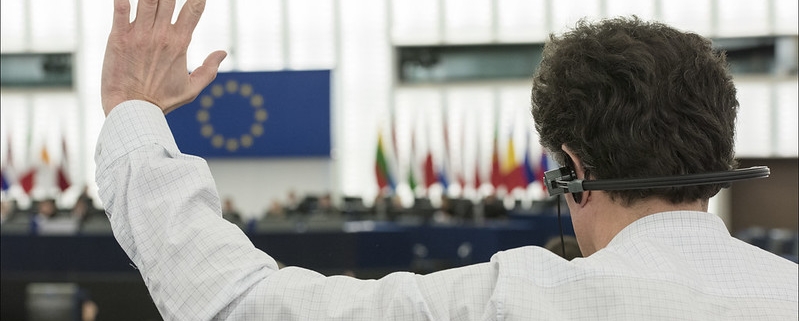
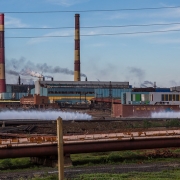
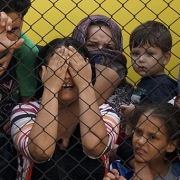
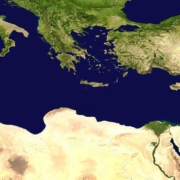
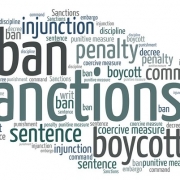
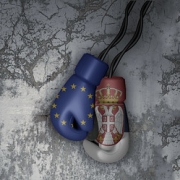
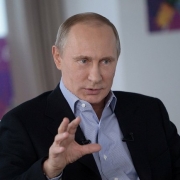



Leave a Reply
Want to join the discussion?Feel free to contribute!